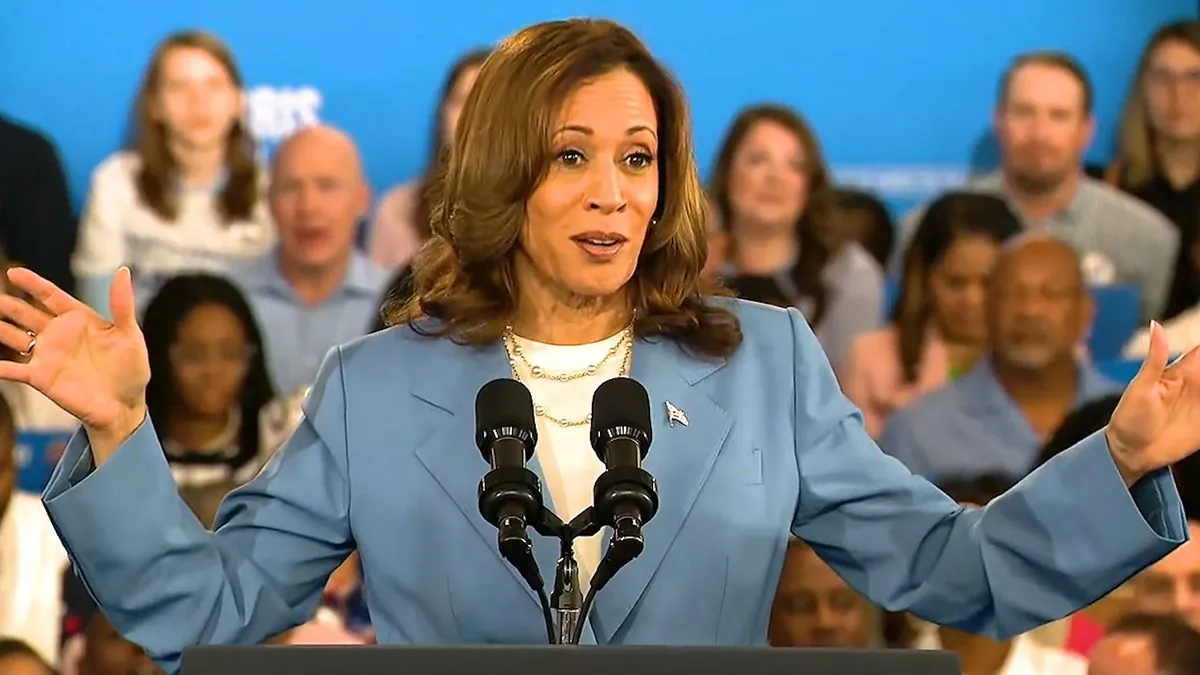Harris's Abortion Rights Push Faces Challenges in North Carolina's Bible Belt
VP Kamala Harris champions abortion rights nationwide, but faces a complex political landscape in North Carolina. Local Democrats navigate religious sensitivities while supporting Harris's historic candidacy.

In the heart of North Carolina's Bible Belt, Vice President Kamala Harris's campaign strategy focusing on abortion rights faces unique challenges. As the Democratic presidential nominee, Harris has positioned herself as the party's leading voice on reproductive freedom, but local activists find themselves treading carefully in this socially conservative region.
Rosemary Lawrence, a Democratic activist in Charlotte, reveals the delicate nature of the issue: "We know that's not a winner down here. When we tend to see something as not being popular, we tend to shy away from discussing it, which is not good. But that's basically where we are."
This hesitancy highlights the complex political landscape in North Carolina, where the social justice movement that underpins Democratic politics has deep roots in the Black church, often socially conservative. The situation illustrates the broader fissures within the Democratic Party, which encompasses a wide spectrum of ideologies from democratic socialists like Rep. Alexandria Ocasio-Cortez to more traditional figures like President Joe Biden, whose Catholic faith has at times conflicted with the party's stance on abortion.

Harris, as the first woman, first Black person, and first person of Asian descent to be Vice President, carries a powerful voice on reproductive freedom. Democratic strategists hope this unique position will motivate voters, particularly suburban women, to turn out in November. However, the effectiveness of this strategy varies across regions.
State Rep. Diamond Staton-Williams, a Democrat and professional nurse, emphasizes the need for a nuanced approach in North Carolina: "It's different, and the approach is different. It's just like code-switching. If I lived in [Los Angeles], my conversation is absolutely going to be different. But we also know you've got to read the room, you've got to know your audience and know who you're talking to."
The challenge for Harris's campaign is to rebuild the multicultural coalition assembled by former president Barack Obama, who narrowly won North Carolina in 2008. However, the state has since leaned Republican in presidential elections, voting for Donald Trump in both 2016 and 2020.
"In North Carolina, the [Harris] campaign should absolutely acknowledge that the Lord and Jesus Christ is centered in this Bible Belt, and they'd better acknowledge faith and they'd better acknowledge that people do care about their faith, and their faith informs decisions."
Despite these challenges, many Black women in North Carolina support Harris's historic candidacy. As Steele notes, "If we support VP Harris, then there's this thought that maybe we will not be favored by God, right? But we've also never had a Black female president."
The abortion issue has gained additional complexity following recent legal developments. In February 2024, the Alabama Supreme Court ruled that frozen embryos are people, potentially affecting in vitro fertilization (IVF) treatments. Harris has warned about the broader implications of such decisions, framing the debate as part of a larger struggle for freedom.
As the campaign progresses, Harris and her team must navigate the delicate balance between emphasizing reproductive rights and respecting the religious sensitivities of North Carolina voters. The outcome of this strategy could have significant implications for the Democratic Party's success in this crucial swing state.


































